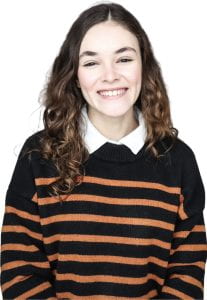Ana de Souza

Please provide a brief summary of your research.
Anterior temporal lobectomy (ATL) involves the surgical resection of left or right medial temporal lobe (MTL) structures to control seizures in 80% of patients with medication-resistant temporal lobe epilepsy (TLE). MTL supports the formation and retrieval of memories for past experiences, so the benefits associated with ATL must be balanced with the risks of memory decline. Currently, presurgical memory lateralization relies on an invasive procedure called the Wada test, which can be inaccurate, particularly in younger children or those with developmental delays. This project aims to improve memory outcomes in pediatric TLE patients by using fMRI to determine memory lateralization prior to left or right ATL. To achieve this, we designed two memory tasks to be performed in-scanner, one examining associative memory and one examining naturalistic event memory. In healthy participants, we hypothesize bilateral MTL activation during the performance of both tasks. In patients with left or right TLE, we hypothesize greater activation lateralized to the non-epileptic MTL. Now, we are leading pilot testing of the memory tasks and subsequent data collection in healthy children and adolescents. Once we analyze the data, we plan to recommend one or both tasks to be paired with fMRI and employed in the presurgical evaluation of pediatric TLE patients. We further plan to pair the tasks with intracranial EEG during presurgical monitoring to examine the neurophysiological mechanisms underlying fMRI effects. We hope the findings of this project indicate that our clinical memory task method can replace the Wada test for patients being considered for ATL.
What made you initially interested in researching your project in particular?
My major (Industrial Engineering) is not related to this area, but I took an Intro to Psychology class and became genuinely interested in Neuroscience topics. I wanted to learn more about it and I also thought it would be fun to work with kids when we got to the data collection phase! My major is very quantitative (a lot of Statistics and Computer Science), so I was very excited about applying my theoretical knowledge to this project, especially because I was so interested in it.
What made you interested in pursuing (interdisciplinary) research more broadly?
First, I wanted to find a hands-on experience to apply all the theoretical things I am learning at Northwestern. Second, I was curious about what doing research would be like; I had never been part of a research project before and wanted to try it out.
Describe your experiences with research thus far. Was it tricky? What skills do you think you’ve gained?
I had a great experience! Dr. Johnson (my faculty mentor) was very supportive and willing to teach me. While I was coding the behavioral tasks, I also had a lot of autonomy, which was very exciting. Though this project, I ended up discovering I really enjoy Neuroscience! The projects I am working on are challenging but the support of my lab and my genuine interest in the research keep me going. Two of the most important skills I’ve gained are not being afraid to ask for help and not running away from challenges.
Any tips or advice you have for students similar to you that are interested in pursuing undergraduate research?
Find something that you are genuinely interested in – this will make a huge difference in the long run! Also, don’t give up on finding a lab and use the Office of Undergraduate Research resources.
If you had unlimited time, money, resources, support, etc. what is something you would research?
I would still research the same thing!
What is your most useless talent?
If I feel tired, I can sleep anywhere. And I really mean anywhere.
